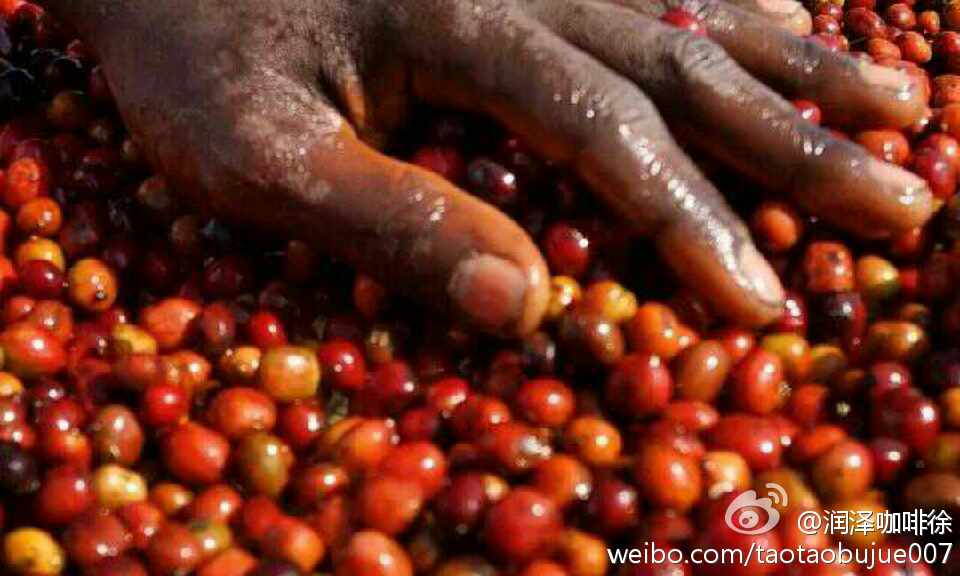Guatemala Antigua coffee with a very strong flavor
Between 1950 and 1954, the ruling president Jacobo Abens implemented land reform, when big landlords, who accounted for 2 per cent of the country's population, owned about 70 per cent of the country's arable land. Arbens wrote a check for land reform, promising to buy the land held by the big landlords and redistribute it to small farmers. Arbens won the election, and the land reform plan was carried out immediately. Landlords who own more than 223 acres of land will be expropriated as long as there is land not used for production. In the end, an average of 4300 acres of land was expropriated from 1059 farms, and about 100, 000 farmers were given ownership of the land. [7]
United Fruit has its largest estate in Guatemala, and it also owns medium
Guatemala
Guatemala
Inter-American Railway and the only seaport in Guatemala. Driven by the United Fruit Company, the US Ministry of Foreign Affairs began a propaganda war against Guatemala to crack down on the Arbens regime in the name of anti-communism. The Central Intelligence Agency, in cooperation with the opposition among Guatemalan soldiers, launched an operation called Operation PBSUCCESS. [7]
In 1954, Arbens was overthrown and Castillo Armas became the new dictator. The new government immediately invalidated all reforms. Enter the period of transition between the right-wing military government and the literati government. [1]
In 1957, Armas was assassinated and his heir was a soldier who was already known for his bloodshed in the dictatorship of the 1940s. [7]
In 1960, leftist military groups appeared in Guatemala. [1]
In 1982, the leftist guerrillas across the country merged to form the "National Revolutionary Alliance of Guatemala" and armed struggle spread throughout the country. Farmers dissatisfied with the overthrow of the Arbens regime organized a guerrilla group in which more than 100,000 people were killed and millions displaced. In September 1982, the persecution of the local Mayans by the Guatemalan army was close to genocide, and more than 9000 Mayans were killed. Since 1983, persecution on the part of the Government of Guatemala began to decrease and the country began to democratize again. However, the disparity between the rich and the poor has not been solved, and only a small number of people who account for 1% own more than 60% of the arable land and wealth. In 1985, Guatemala reorganized the general election.
The aroma of coffee liberates all forms, hearts and national boundaries. Through coffee, the mood leaves the country at any time and lands in a strange country half a world away. Even at the end of the world, you can share a mood. Antigua was the capital of the Spanish colonial period in 1543. Although this emerald-like valley has been surrounded by active volcanoes in all directions, layered, deliberately waiting and full of dangers since ancient times, its vastness, vastness and fertility still tempted Spaniards to build a capital in the precarious cliff valley.
The volcano once destroyed the once-prosperous capital in an instant, robbing it of all its prosperity and beauty overnight. After this subversive mountain city, the splendor has disappeared for more than 200 years, and Antigua has never swaggered again. After being dull, Antigua is now run by the last remaining Indians. These hardworking Indians became later coffee producers. They not only discovered the rich and attractive unique smell of Antigua coffee, but also brought it to people all over the world. Today, Antigua coffee enjoys the reputation of the best quality coffee in the world, and is praised by coffee connoisseurs as the best and most distinctive coffee in the world. Guatemalan coffee has a strong aroma, even if you don't drink it. Smelling that aroma is already a kind of enjoyment. Antigua coffee has a rich and velvety mellow, rich and lively aroma, and fine sour taste. When the attractive fragrance lingers on the tip of your tongue, there is an indescribable mystery. You may feel dull at the first sip, but as the coffee cools down, you will find it slightly sweet and be surprised by its depth.
Antigua coffee is popular with most coffee lovers only because of its distinctive aroma. Because it is planted in the hills of volcanoes, it can retain its own characteristics more than Costa Rica, the main reason is that it has more geographical and climatic advantages than Costa Rica. Guatemala is located in the tropics, but due to the relatively high altitude, the climate is mild, it is a subtropical climate. Under the influence of this climate, coffee trees blossom and bear fruit more slowly than coffee trees in other parts of the world. However, the mild climate and fertile soil make it an excellent environment for growing coffee. The coffee produced in Guatemala is one of the top coffees in the world because of its high-altitude volcanic topography. These volcanoes are the ideal places to grow coffee. Compared with other varieties of coffee, critics prefer this mixed flavor coffee with spicy flavor. The extra hard coffee beans here are a rare good coffee with full grains, delicious taste and balanced acidity. In addition, its giant coffee beans have attracted a lot of attention in Guatemala


Important Notice :
前街咖啡 FrontStreet Coffee has moved to new addredd:
FrontStreet Coffee Address: 315,Donghua East Road,GuangZhou
Tel:020 38364473
- Prev

Multi-taste boutique 90 + coffee flavor, characteristics, taste and manor introduction
Juliet (Juliette H2): [Origin]: 90 + Panamanian Rosa Manor, [season]: 2013 to 2014 [Variety]: Rosa [Level]: 39 [altitude]: 1250m-1650m [treatment]: honey treatment [Flavor]: rich floral flavor on the basis of rose summer seed flavor, the entrance taste will have the taste of orange peel, caramel and dried cashew fruit.
- Next

Salvadoran coffee producing areas introduce Salvadoran coffee beans
In the early 1990s, guerrilla warfare greatly damaged the country's national economy, reducing coffee production from 3.5 million bags in the early 1970s to 2.5 million bags in 1990-1991. The eastern part of the country was most affected by guerrilla warfare, and many farmers and workers were forced to leave the manor. The shortage of funds has led to a sharp drop in coffee production, from 1200 kg per hectare in the past to no yield per hectare today.
Related
- Detailed explanation of Jadeite planting Land in Panamanian Jadeite Manor introduction to the grading system of Jadeite competitive bidding, Red bid, Green bid and Rose Summer
- Story of Coffee planting in Brenka region of Costa Rica Stonehenge Manor anaerobic heavy honey treatment of flavor mouth
- What's on the barrel of Blue Mountain Coffee beans?
- Can American coffee also pull flowers? How to use hot American style to pull out a good-looking pattern?
- Can you make a cold extract with coffee beans? What is the right proportion for cold-extracted coffee formula?
- Indonesian PWN Gold Mandrine Coffee Origin Features Flavor How to Chong? Mandolin coffee is American.
- A brief introduction to the flavor characteristics of Brazilian yellow bourbon coffee beans
- What is the effect of different water quality on the flavor of cold-extracted coffee? What kind of water is best for brewing coffee?
- Why do you think of Rose Summer whenever you mention Panamanian coffee?
- Introduction to the characteristics of authentic blue mountain coffee bean producing areas? What is the CIB Coffee Authority in Jamaica?

